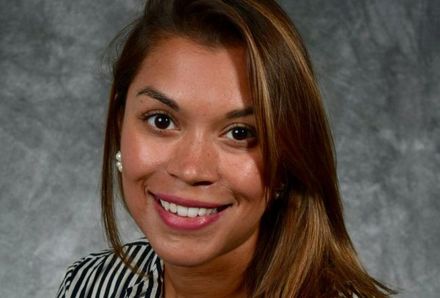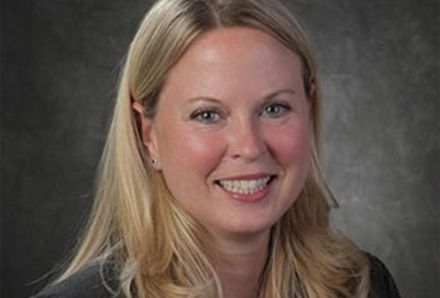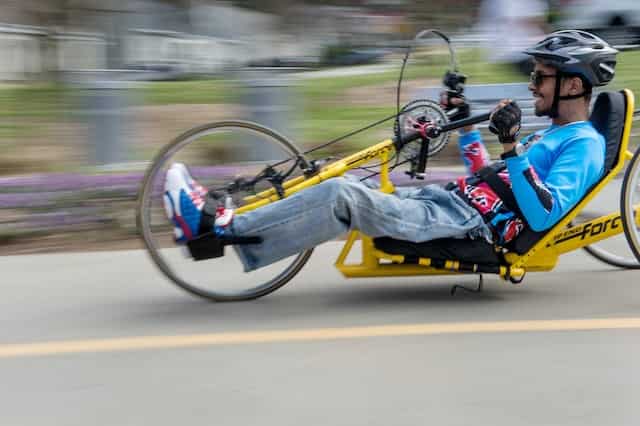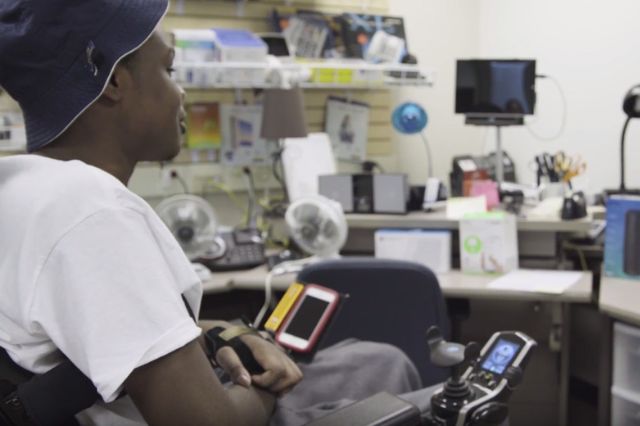Shepherd Center Rehabilitation Psychology Post-Doctoral Training
About the Fellowship in Rehabilitation Psychology
The Rehabilitation Psychology Fellowship Program at Shepherd Center offers a unique environment to learn at a premier neurorehabilitation hospital while facilitating opportunities to collaborate with other allied healthcare professionals and provide direct care to a diverse clinical population.
Fellowship training takes place at Shepherd Center, an internationally accredited institution by the Joint Commission and CARF, as well as a designated NIDILRR-Model System for Spinal Cord Injury and Traumatic Brain Injury. The fellowship also adheres to Baltimore Conference on Specialty Education and Training in Rehabilitation Psychology guidelines.
Completing this 24-month postdoctoral fellowship will prepare aspiring rehabilitation psychologists to provide clinical services across varying cultures and diverse settings, with eventual certification by the American Board of Professional Psychology in Rehabilitation Psychology. Typical patient populations include traumatic spinal cord injuries, non-traumatic injuries (e.g., spinal tumors), and spinal cord disorders and diseases (e.g., transverse myelitis, Guillain-Barre Syndrome) as well as dual diagnosis (ABI and SCI).
To learn more, download our Rehabilitation Psychology Postdoctoral Fellowship brochure.
In more than four decades, Shepherd Center has grown into a world-renowned, 152-bed hospital that treats more than 8,000 patients annually across our inpatient, outpatient, and day programs. Recognized as Model Systems for both Spinal Cord Injury and Traumatic Brain Injury, Shepherd is part of an elite group of hospitals driven to provide extraordinary care. Some things that make us a top training facility include:
Get to Know Shepherd Center
Based in Atlanta, Georgia, Shepherd Center is a private, not-for-profit hospital providing world-class clinical care, research, and family support for people experiencing the most complex conditions, including spinal cord and brain injuries, multi-trauma, traumatic amputations, stroke, multiple sclerosis, and pain. Recognized as both a Spinal Cord Injury and Traumatic Brain Injury Model System, Shepherd Center is ranked by U.S. News as one of the nation’s top hospitals for rehabilitation. Shepherd Center treats thousands of patients annually with unmatched expertise and unwavering compassion to help them begin again.

My favorite part about working at Shepherd Center is that I love being a member of a team of smart, creative, and passionate people. I love being able to teach and learn from others. I love feeling like my contributions can help make a difference in patients’ lives and those of their family members.
Jill Koval, Ph.D., ABPP
Department of Psychology
Meet Our Rehabilitation Psychology Fellowship Faculty

Punam Rahman, PsyD, ABPP-Rp
Rehabilitation Psychologist
Training Director

Laurie Baker, Ph.D., ABPP-Rp
Director, Department of Psychology
Frequently Asked Questions
Shepherd Center is deeply committed to the training of future rehabilitation psychologists from a culturally competent framework and fostering an environment that is highly sensitive to and appreciative of all aspects of diversity. The culture at Shepherd Center is fueled by progress, inclusiveness, and human connection, uniting individuals from all walks of life. As a Shepherd Center fellow, you’ll be part of a supportive community dedicated to individual growth and success. Learn more about what to expect as a rehabilitation psychology fellow at Shepherd.
The Administration for Community Living’s (ACL) National Institute on Disability, Independent Living, and Rehabilitation Research (NIDILRR) recently awarded a five-year grant to Shepherd Center to continue its nearly 40-year tenure as a Spinal Cord Injury Model System (SCIMS) and to receive designation as a Traumatic Brain Injury Model System (TBIMS). NIDILRR awards grants to institutions that are national leaders in medical research and patient care and provide the highest level of comprehensive specialty services through rehabilitation and re-entry into full community life. Shepherd Center is part of an elite group to be designated as both model systems.
Shepherd Center's Rehabilitation Psychology Program offers one to two fellowship training position for the 2023-2025 training years.
The following are required for an application to be considered:
- A doctoral degree, including defense of a dissertation, from a clinical or counseling psychology doctoral program accredited by the American Psychology Association (APA) or the Canadian Psychological Association (CPA) before the start date of the fellowship
- Completion of an APA/CPA-accredited psychology internship program
- Letter of interest
- Curriculum vitae
- One de-identified case (limit 5 pages) discussing conceptualization and assessment/intervention summary, preferably one relevant to our clinical populations
- Unofficial graduate school transcripts*
- Three (3) letters of recommendation
*After the formal offer and acceptance, the fellow is required to send official transcripts to the Fellowship Director.
Clinical service requirements vary depending on the specific clinical rotation and supervisor. In general, the fellow maintains a clinical caseload consistent with Baltimore Guidelines and State of Georgia requirements for postdoctoral training necessary for licensure and board certification. Each year, fellows participate in a minimum of 60% clinical activity, including assessment, intervention, and consultation duties. The fellow’s specific interests and training goals are considered while structuring rotations. The fellow will complete rotations in both inpatient and outpatient settings with clinical responsibilities appropriate to the rotation.
Additional training goals of the fellowship include:
- Evidence-based assessment and interventions with individuals and families experiencing problems related to physical and cognitive impairment, ability, limitation, and participation restriction that focus on individual and family functioning, including affective, cognitive, personality, and behavior functioning as well as social, educational, vocational, and recreational participation.
- Interprofessional collaboration and consultation at the level of the clinical team, program, and community to provide comprehensive and effective care for individuals with disabilities and to maximize rehabilitation team and program functioning.
- Sufficient scholarly activity through submission of a study or literature review for publication, presentations, grant proposals, or outcome assessments.
- Eligibility for state licensure in the state/province in which the fellow intends to practice.
- Eligibility for board certification in rehabilitation psychology by the American Board of Professional Psychology.





